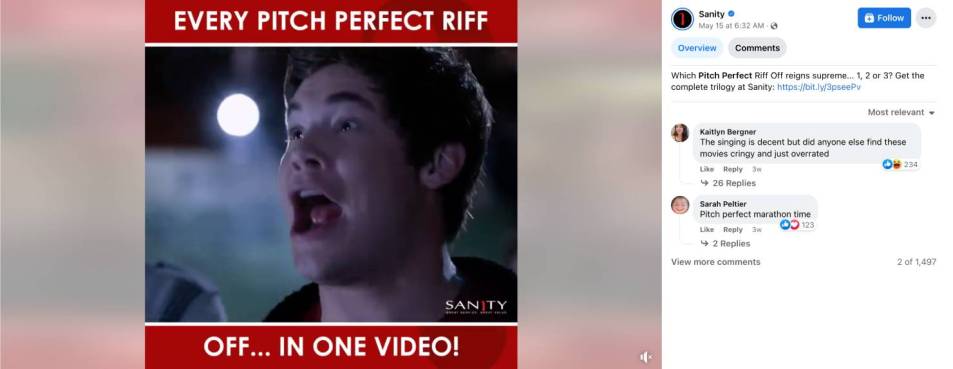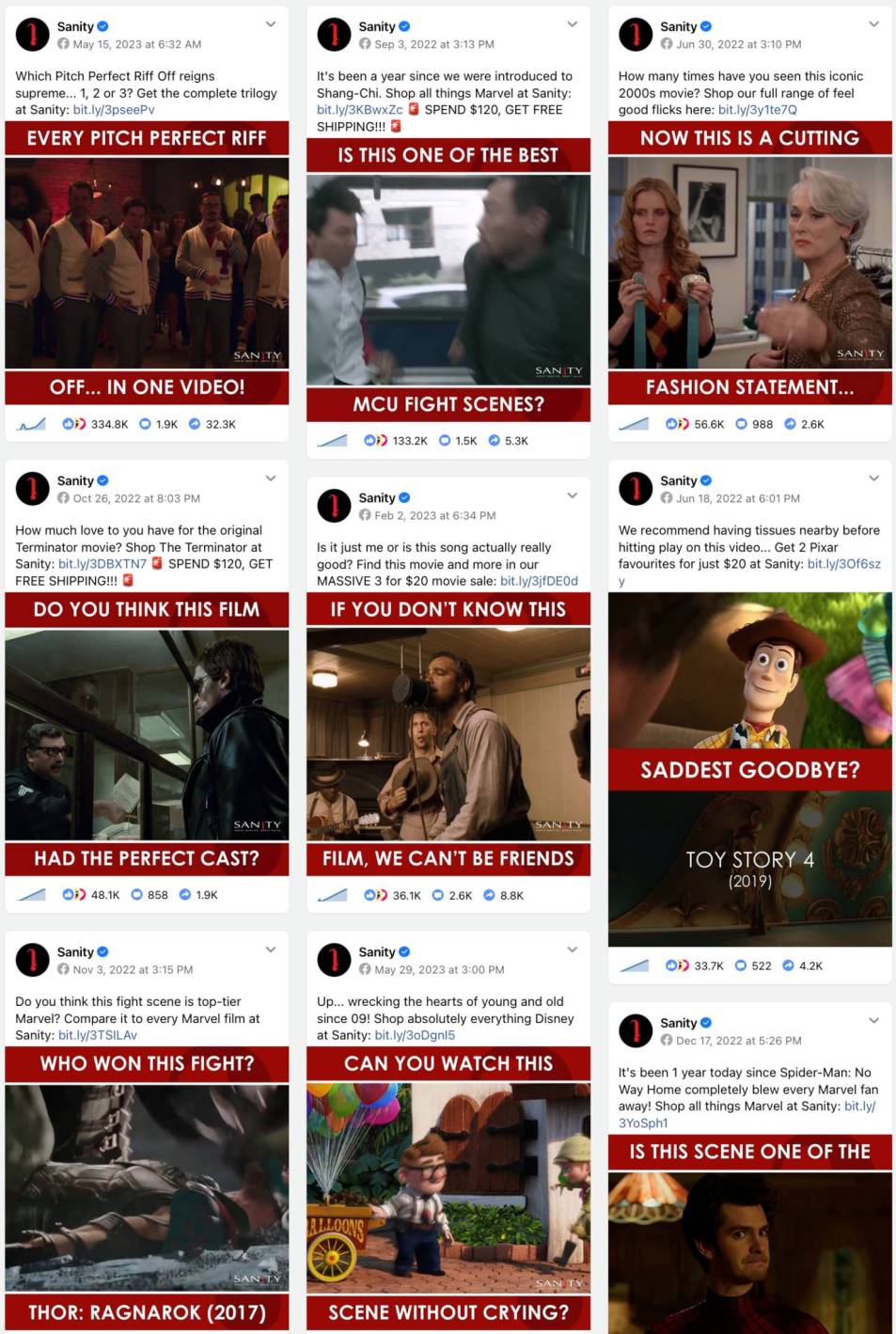
Trending
Consider this: last year, Meta took down 91,000 pieces of “harmful health misinformation” in Australia. That’s about 250 pieces removed every single day from Facebook and Instagram. It’s less than 2021 and 2020, when they took down 180,000 and 110,000 posts respectively.
Is that a lot? Or is that not enough? Could it even be the perfect amount? That’s what I wondered as I read Meta’s “transparency report” for 2022, released alongside similar reports from tech companies like Google and Twitter as part of their voluntary participation in an industry-created Australian misinformation and disinformation code.
Last month was the second annual release of these reports. Each year, tech companies have promised to report against a few dozen commitments to show what they’re doing to combat mis/disinformation, disrupt its monetisation, combat inauthentic behaviour (like bot networks and foreign influence campaigns), inform users, regulate political advertising, and facilitate research.
For the nerds among us — may I be bold enough to suggest that this includes you, dear reader, if you’ve made it this far through a newsletter about social media content moderation — it’s always fun to pick through these numbers to see if anything sticks out. Like Google showing “information prompts” on YouTube videos on topics rife with misinformation more than 150 million times (seems like a lot) or TikTok removing 15,702 videos in Australia for containing dangerous, election or medical-related misinformation (seems like not many).
I’m glad the tech industry is going out of its way to give Australians more information about how companies are wielding their immense power online, so I won’t cynically suggest that going above and beyond what they do in other countries was to ward off a federal government eyeing regulation. But it’s hard to separate the signal from the noise when you’ve got raw data without much context.
It doesn’t have to be like this. Meta on its own transparency website uses metrics like prevalence (as in, what percentage of posts meet a criteria like containing violence or incitement) that give a much more complete picture of what’s going on, particularly when also combined with the raw stats.
That’s not to suggest it’s completely useless. Take Twitter’s report, for example. Unlike the report for 2021, statistics for the Australian audience (rather than just global stats) are notably missing in the most recent report. Plus it says that features like its pay-for-play Twitter Blue verification system are helping stop scams and spam, which is just absolutely not true. It’s fair to say that Twitter’s inability to meet even these basic expectations suggests broader problems at the company under Elon Musk. It’s like Van Halen’s infamous “no brown M&Ms” rider: whether someone follows the rules, regardless of what they are, can tell you a lot.
Hyperlinks
Australian neo-Nazis are thriving on Elon Musk’s Twitter
Following that thread, the bird site’s new regime has proven to be a fertile place for online extremists. (Crikey)
‘Wild west’: Australia’s would-be tenants asked about tattoos and social media as calls grow for regulation
Technology makes things easier. That’s not always a good thing, as we can see from this example of tech being abused by people in a position of power. (Guardian Australia)
Artificial intelligence technologies could be classified by risk, as government consults on AI regulation
Very interesting policy area to watch. (ABC News)
Don’t. Use. A. Work. Phone. For. Personal. Shit.
This article, which covers Home Affairs secretary Mike Pezzullo talking about apps used on the department’s phones, segues into a very strong belief of mine: anything personal you do on a work phone can and will be used against you if you ever get into the doghouse with your boss. (Gizmodo Australia)
Big tech backs privacy reform but warns against too much consent
I think tech companies know that there’s not much point arguing against much-needed privacy reforms from their perspective, so they’re framing their opposition on behalf of small and medium businesses. (The Australian Financial Review)
OzBargain war breaks out over transphobic documentary ‘deal’
Nowhere is safe from the culture wars. (Crikey)
Content Corner
Remember Sanity? For suburban millennials, the Australian music, television and film-selling chain store holds a special place in our amygdala as the nostalgic backdrop to wasted afternoons spent hanging out in shopping centres. Just thinking about it makes me remember the scent of Lynx deodorant and bargain-store hair gel that I used to stick my fringe straight up as an early teen.
After somehow limping on for nearly two decades after the introduction of online music stores and then streaming services decimated their major revenue stream, Sanity announced that its last two remaining stores would close in March.
Except, as I recently discovered, a zombie version of Sanity has lurched on. Looking through social media analysis tool CrowdTangle, I noticed that one of the most popular posts on Facebook for Australian users was a 17-minute compilation video clip of every song from the Pitch Perfect movie trilogy shared by none other than the Sanity Facebook page. The post had accumulated more 336,000 reactions and more than 9 million views. (One of its top comments: “The suspension of disbelief is just ruined when everyone is choreographed and in melody and has their backup vocals setup.” Preach!)

I noticed that Sanity was frequently going viral by sharing long, Fair Use-abusing clips from The Devil Wears Prada, the original Terminator and other popular films from the Pixar and Marvel Cinematic Universes. They were typically overlaid with text asking whether viewers thought Toy Story 4 had the “saddest goodbye” or challenging them to watch the tear-jerking opening 10 minutes from the movie Up without crying.

The motivation behind these posts is, predictably, money. Every post links back to Sanity’s website, which is an online store selling CDs, DVDs, Funko Pop! Vinyl toys and other merchandise.
I’ll be honest, scrolling through the sterile website doesn’t quite evoke the same serotonin as flipping through the latest nu metal album releases. Still, I’m glad that a part of my childhood has managed to adapt to survive, even if it requires flagrantly disregarding copyright law.
That’s it for WebCam this week! I’ll be back soon. In the meantime, you can find more of my writing here. And if you have any tips or story ideas, here are a few ways you can get in touch.








Crikey is committed to hosting lively discussions. Help us keep the conversation useful, interesting and welcoming. We aim to publish comments quickly in the interest of promoting robust conversation, but we’re a small team and we deploy filters to protect against legal risk. Occasionally your comment may be held up while we review, but we’re working as fast as we can to keep the conversation rolling.
The Crikey comment section is members-only content. Please subscribe to leave a comment.
The Crikey comment section is members-only content. Please login to leave a comment.